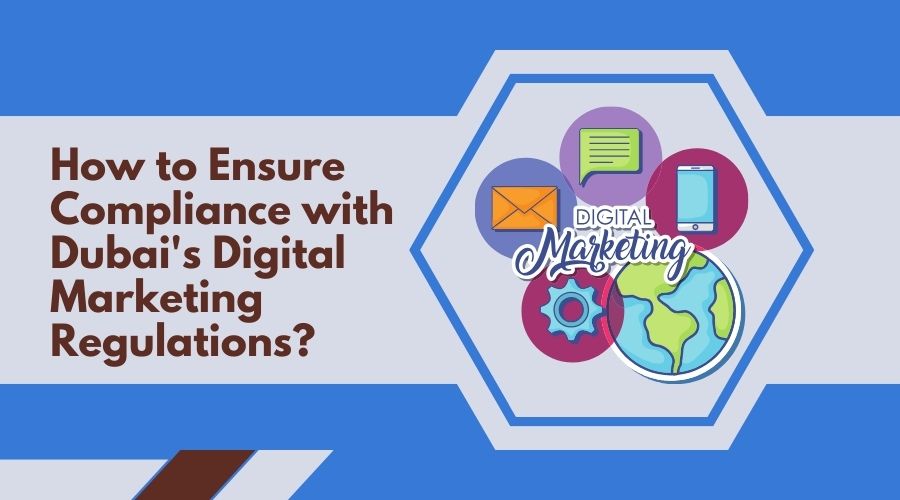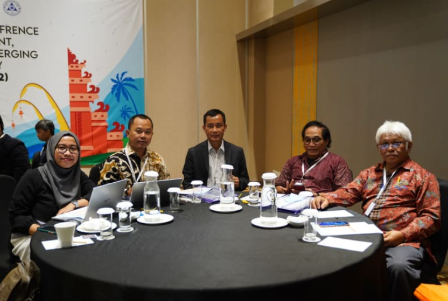In the dynamic and competitive landscape of Dubai’s digital marketing industry, staying compliant with regulations is essential for businesses to operate ethically, protect consumer rights, and avoid potential penalties. As Dubai continues to evolve as a global hub for digital innovation, regulatory frameworks are put in place to govern various aspects of digital marketing activities. In this guide, we’ll explore how businesses can ensure compliance with Dubai’s digital marketing regulations to maintain trust, credibility, and legality in their marketing endeavors.
Businesses can start by familiarizing themselves with the relevant laws and regulations governing digital marketing activities in Dubai. This includes understanding guidelines related to data privacy, advertising standards, and consumer protection. Conducting regular audits of marketing campaigns and practices can also help identify any potential compliance issues and ensure alignment with regulatory requirements. Additionally, staying updated on any changes or updates to regulations and adapting marketing strategies accordingly is crucial for ongoing compliance. By proactively addressing compliance concerns and integrating regulatory requirements into their digital marketing strategies, businesses can build a solid foundation for ethical and lawful marketing practices in Dubai’s dynamic digital landscape.
Understanding Dubai’s Digital Marketing Regulations
In the bustling metropolis of Dubai, where the digital landscape is ever-evolving and businesses strive to leverage online platforms for growth, understanding the regulatory framework governing digital marketing activities is paramount. Dubai’s digital marketing regulations encompass various aspects, including data privacy laws, advertising standards, and consumer protection regulations. Adhering to these regulations is not only essential for legal compliance but also for maintaining trust and credibility with consumers in the region.
Businesses offering digital marketing services in Dubai must navigate these regulations diligently to ensure ethical and lawful practices in their marketing endeavors. This includes obtaining necessary permits or licenses, ensuring transparency in advertising practices, and safeguarding consumer data in accordance with privacy laws. By understanding and adhering to Dubai’s digital marketing regulations, businesses can mitigate legal risks, build trust with consumers, and foster a conducive environment for sustainable growth and innovation in the digital marketplace.
1. Data Protection and Privacy Laws
Dubai has implemented data protection and privacy laws, such as the Dubai Data Law and the UAE Personal Data Protection Law, to safeguard individuals’ privacy rights and regulate the collection, processing, and storage of personal data by businesses operating in the region. Compliance with these laws is essential for businesses engaged in digital marketing activities that involve the collection and use of personal data from individuals.
2. Advertising Standards and Guidelines
The Dubai government, through entities like the Dubai Economy and the National Media Council, enforces advertising standards and guidelines to ensure that marketing communications are truthful, transparent, and ethical. Advertisers must adhere to regulations related to content accuracy, clarity, and legality, as well as guidelines for specific industries and advertising mediums.
3. E-commerce Regulations
E-commerce businesses operating in Dubai are subject to regulations governing online transactions, consumer rights, and electronic payment systems. Compliance with e-commerce regulations involves ensuring transparency in pricing, providing clear terms and conditions, securing online transactions, and protecting consumers’ rights regarding refunds, cancellations, and product warranties.
Also read:- Engaging and Selling Through Social Media Marketing Company in Dubai
Strategies for Ensuring Compliance
Ensuring compliance with regulations is a critical aspect of operating any business, particularly in industries like digital marketing where laws and standards are continuously evolving. To navigate these complexities effectively, businesses in Dubai must adopt proactive strategies to ensure compliance with local and international regulations. One key strategy is to stay informed and updated on relevant laws and industry standards through regularly monitoring regulatory updates, participation in industry forums, and engagement with legal experts specializing in digital marketing regulations. By staying abreast of changes in the regulatory landscape, businesses can proactively adjust their practices and policies to remain compliant and mitigate potential legal risks.
Additionally, implementing robust internal compliance processes and controls can help businesses maintain adherence to regulations across their operations. This includes establishing clear policies and procedures for data privacy, advertising practices, and consumer protection measures. Regular audits and assessments can also be conducted to identify areas of non-compliance and address them promptly. Furthermore, investing in employee training and awareness programs can ensure that staff members understand their responsibilities regarding compliance and adhere to established protocols. By prioritizing compliance and implementing proactive strategies, businesses in Dubai can build trust with stakeholders, safeguard their reputation, and foster a culture of ethical and legal conduct in the digital marketing industry.
1. Educate Your Team
Provide comprehensive training and education to your marketing team on Dubai’s digital marketing regulations, including data protection laws, advertising standards, and e-commerce regulations. Ensure that all team members are aware of their responsibilities and obligations regarding compliance.
2. Conduct Regular Audits and Assessments
Regularly audit your digital marketing practices, processes, and campaigns to assess compliance with Dubai’s regulations. Evaluate data collection and processing procedures, advertising content and messaging, website terms and conditions, and e-commerce processes to identify areas of non-compliance and take corrective actions.
3. Implement Data Protection Measures
Implement robust data protection measures to safeguard personal data collected from individuals during digital marketing activities. Obtain explicit consent from individuals before collecting their data, securely store and process data in compliance with regulations, and provide individuals with options to access, update, or delete their data upon request.
Related read:- How to Choose the Right Digital Marketing Package for Your Dubai Business
4. Monitor Regulatory Updates
Stay informed about updates and changes to Dubai’s digital marketing regulations and adjust your practices accordingly. Regularly monitor announcements, guidelines, and directives from regulatory authorities, industry associations, and legal experts to ensure that your business remains compliant with evolving regulations.
5. Work with Legal Experts
Seek guidance and advice from legal experts specializing in digital marketing regulations in Dubai. Consult with experienced legal professionals to assess your compliance status, address any compliance issues or concerns, and ensure that your digital marketing practices align with regulatory requirements and best practices.
Conclusion
Ensuring compliance with Dubai’s digital marketing regulations is essential for businesses to operate ethically, protect consumer rights, and maintain legal integrity in their marketing endeavors. By understanding the regulatory landscape, educating your team, conducting regular audits, implementing data protection measures, monitoring regulatory updates, and working with legal experts, businesses can navigate the complexities of digital marketing regulations in Dubai and build trust, credibility, and success in the competitive market. Embrace compliance as a cornerstone of your digital marketing strategy and demonstrate your commitment to ethical and lawful practices that benefit consumers, businesses, and the digital ecosystem in Dubai.




